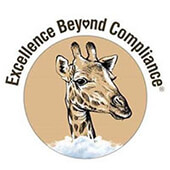Academy Contributors
Getting Better All the Time:
Improving Animals' Lives Every Day
 By James F. Gesualdi By James F. Gesualdi
To keep ahead, each one of us, no matter what our task, must search for new and better methods—for even that which we now do well must be done better tomorrow.
—James F. Bell
The zoological world is all about living beings. Historically, the zoological community was centered on people and their opportunity to see live animals. This focus has largely shifted toward being more about the animals, but continued public visitation and support is essential to the future of the zoological community. At the heart of that support—and upholding the public trust in zoological organizations—is the quality of life afforded those other living beings, nonhuman animals, entrusted to our care. This is likewise a primary driver of concerns expressed by zoological critics and keenly interested members of the public.
Everything we think, say, and do contributes to the lives of the animals we serve. Really? Yes, truly. How we think and speak about our calling or purpose in making a difference for animals, people, and our planet manifests in our actions and the response. Sometimes we emphasize our mission in terms more akin to other avenues of endeavor. But that also matters: zoos, aquariums, marine parks, and wildlife parks, as well as sanctuaries and all animal-related organizations, need to engage in sound business practices to maintain and grow the resources to best care for animals, enhance their well-being, and aid in wildlife conservation.
Even the questions we ask ourselves and our organizations matter. Imagine the possibilities when we begin considering any initiative with the simple question, "Is this in the best interest of the animals?" Granted, "interest" is still largely undefined. But we can address that easily enough by framing it this way: the best interest of the animals encompasses the overall well-being of the animals in general and individually. This is a key, foundational building block worthy of greater discussion and exploration. Having the zoological community fully engaged in working through this will help the cause of animals everywhere.
Thinking constructively and creatively, having the animals and their interests top of mind, and acting on their behalf is the way to maintain the high ground. We have a tremendous responsibility for the animals in our care, and that is our great opportunity to serve animals and to better the future of the world through the zoological community. The animals live with us and we live for them. And that is the only framing that matters.
Viewing the online video of the recent Association of Zoos and Aquariums talk given by Wayne Pacelle, president and CEO of the Humane Society of the United States, and the wide range of reactions it prompted, reinforced the sentiments expressed here. The most powerful sentence in that talk was, "I thank all of you for the work that you do every day to make animals' lives better." All of us have an obligation to live up to this statement, regardless of the organization we represent or who made the statement. Improving animals' lives daily is the most important work we do, and there is near universal agreement about that.
Next time someone asks what I do, I will proudly reply that my mission is "helping people dedicated to improving animals' lives daily." At least that is how to think about it, express it, and more fully live it, in a genuine and compelling way that even those with differing perspectives can respect.
Far and away the best prize that life has to offer is the chance to work hard at work worth doing.
—Theodore Roosevelt
Happy Thanksgiving! Please know that this grateful heart greatly appreciates the good you do daily in making a difference for animals and people. Thank you!
We must find time to stop and thank the people who make a difference in our lives.
—Robert Kennedy
In case you missed the USDA's announcement, they have a presentation on their website that explains the role of attending veterinarians under the AWA. The presentation is a product of the Iowa State University Center for Food Security & Public Health, via a cooperative agreement with USDA APHIS Animal Care, and is available at aphis.usda.gov/animal_welfare/downloads/awa/Attending-Vet-PPT-09-25-2017_secure.pdf. More to come.
For more information on Excellence Beyond Compliance®, visit excellencebeyondcompliance.com.
©2017 James F. Gesualdi, P.C. The opinions expressed herein are solely those of the author. This is not, nor should it be construed as, legal advice. |